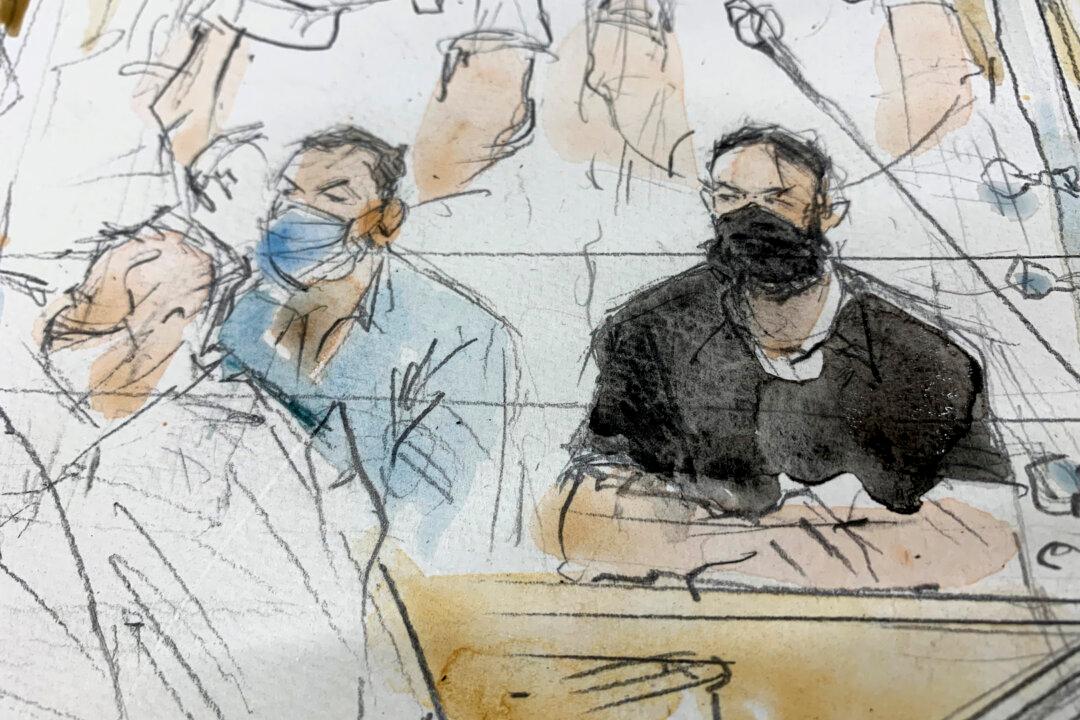The prime suspect in the Paris terrorist attacks that killed 130 people nearly six years ago described himself on Sept. 8 as a “fighter of the Islamic State” while appearing on trial over the worst terror attack in France’s history.
Salah Abdeslam, a 31-year-old man with French citizenship but who grew up in Belgium, is one of 20 suspects on trial for their involvement in the November 2015 gun-and-bomb attacks on six restaurants and bars, the Bataclan concert hall, and a sports stadium where then-President Francois Hollande was attending a game.





